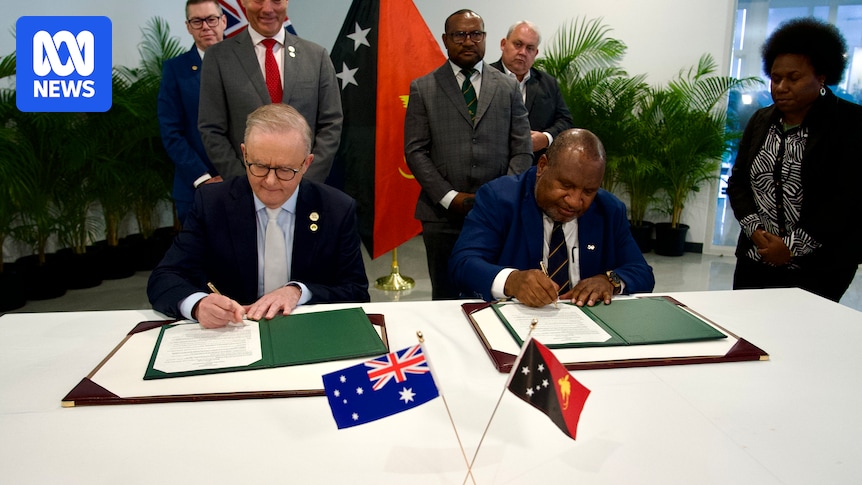
China has issued a warning to Papua New Guinea (PNG) against entering any agreements that might exclude or limit third-party cooperation, as Australia seeks to finalize a significant defense treaty with the Pacific nation. This comes after PNG and Australia signed the ‘Pukpuk’ communique, a precursor to the formal treaty.
In a recent social media post, the Chinese embassy in PNG emphasized the importance of maintaining the country’s independence, urging PNG to “properly handle issues bearing on its sovereignty and long-term interests.” This statement underscores China’s concern over the potential impact of the Australia-PNG defense pact on its own strategic interests in the region.
China’s Strategic Interests in PNG
China is a key trade and economic partner for PNG, and the potential defense agreement with Australia has raised alarms among defense experts in the island nation. They fear that the high-level pact could strain PNG’s relationship with Beijing, which has been a significant player in the region’s economic landscape.
The Chinese embassy’s post represents the most direct public response from China regarding the treaty since details were first disclosed by the Australian Broadcasting Corporation (ABC) earlier this week. The pact, if finalized, would formalize military alliances between Australia and PNG, committing both nations to mutual defense in the event of an attack.
The Pukpuk Treaty: A Closer Look
Known as the Pukpuk Treaty, the agreement promises that any activities undertaken with third parties will not compromise the treaty’s objectives. Despite expectations for the treaty to be signed on Wednesday, procedural hurdles delayed its finalization. Australian Prime Minister Anthony Albanese explained that the delay was due to PNG’s national cabinet failing to reach a quorum, as ministers were unavailable due to independence celebrations.
Leaders from both countries remain optimistic, anticipating that the treaty will be signed in the coming weeks. The communique signed in lieu of the treaty highlights the ongoing commitment to strengthen bilateral defense ties.
China’s Diplomatic Response
In its social media message, the Chinese embassy acknowledged PNG’s right to enter bilateral treaties but cautioned against exclusivity. The post stated, “Nor should it restrict or prevent a sovereign country from cooperating with a third party for any reason. It should also refrain from targeting any third party or undermining its legitimate rights and interests.”
PNG Prime Minister James Marape has indicated that the country’s defense minister, Billy Joseph, will engage in discussions with China and Indonesia regarding the treaty’s parameters. This diplomatic move suggests PNG’s intent to balance its relationships with both Australia and China.
Regional Implications and Future Steps
The unfolding situation in PNG is emblematic of the broader geopolitical dynamics in the Pacific region, where major powers like China and Australia vie for influence. The potential signing of the Pukpuk Treaty could redefine strategic alliances, impacting regional security and economic partnerships.
Meanwhile, the Indonesian government has remained silent on the matter, with its Ministry of Foreign Affairs declining to comment. This silence leaves questions about how other regional players might react to the evolving defense landscape.
As PNG navigates its diplomatic course, the international community will be watching closely. The decisions made in the coming weeks could have lasting effects on the balance of power in the Pacific, influencing not only PNG’s future but also the strategic interests of its neighbors and global partners.
The next steps will involve further diplomatic discussions and negotiations, as PNG seeks to finalize the treaty while maintaining its sovereignty and fostering regional cooperation.







